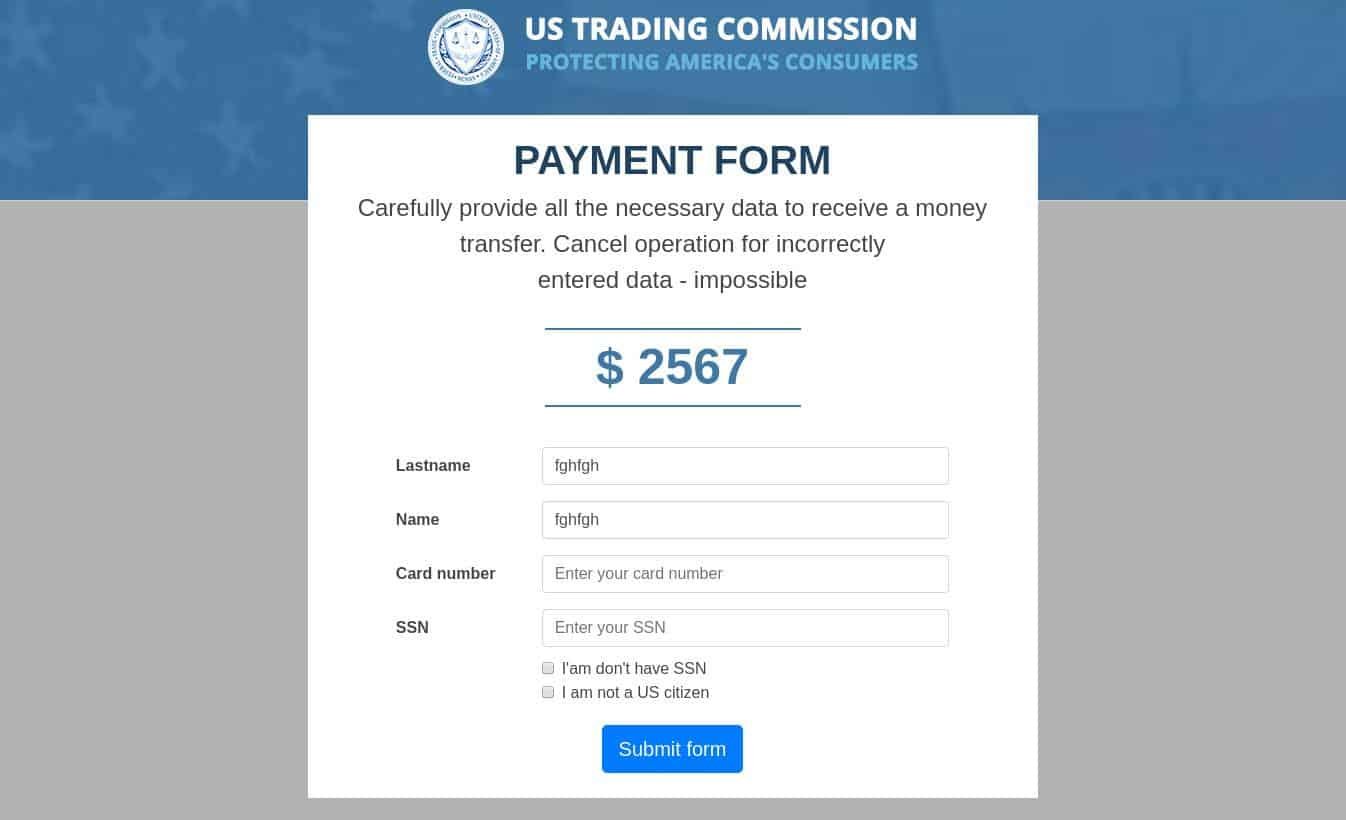Kaspersky experts have identified a new online fraud scheme designed to trick them people, κάνοντάς τους να πιστέψουν ότι τους οφείλεται compensation. Με το πρόσχημα της προσφοράς αποζημίωσης για διαρροές δεδομένων προσωπικού χαρακτήρα, οι απατεώνες προτρέπουν τους χρήστες να αγοράσουν «προσωρινούς αριθμούς κοινωνικής ασφάλισης ΗΠΑ» αξίας περίπου $9 ο καθένας. Θύματα εντοπίστηκαν στη Ρωσία, την Αλγερία, την Αίγυπτο και τα ΗΑΕ, μεταξύ άλλων χωρών.
Privacy and data protection are among the most talked about topics in recent years. This is not surprising, as are the penalties imposed on companies that have experienced data breaches. This, like any other topic that catches the eye, could not help but attract scammers who look forward to making money at the expense of others.

Kaspersky experts have identified a brand new design that takes advantage of these privacy issues. The plan includes a website allegedly owned by the Privacy Fund, which was set up by the US Commerce Commission. As mentioned, the fund issues compensation to those who may have leaked personal data and is available to citizens from any country in the world.
For those interested, the site offers to check if any user's data has ever been leaked. For this purpose, the user must provide their full details (name, phone number and social media accounts). Once this is done, a notification appears stating that the user has been leaked, which may include data such as photos, videos and contact information, allowing the user to receive thousands of dollars in compensation. However, scammers don't just ask the user to enter a credit card number and wait for the compensation amount to be credited. Users must also enter their Social Security Number (SSN – a nine-digit number issued to US citizens, as well as permanent and temporary employees in the USA).
In every possible scenario - whether it is the absence of SSN or the introduction of a valid existing SSN - the site warns of errors and offers to sell a temporary one for $ 9. Upon agreement, the victim is redirected to this payment form in Russian or English with the purchase price set in rubles or dollars respectively. This form depends on the IP address of the victim.
“The scammers themselves are most likely Russian-speaking, as suggested by the request for payments in rubles, plus the system's suspicious similarity to other easy money offers that often lure residents of Russia and the CIS. The electronic bait in these schemes varies — gifts, surveys, even a part-time job as a sender taxi – αλλά τείνουν να είναι στα Ρωσικά (όπως και μερικά από τα προηγούμενα links). Η ουσία είναι πάντα η ίδια: η μεγάλη υπόσχεση για αρκετά κι εύκολα χρήματα, ακολουθούμενη από μια απαίτηση πληρωμής για μια φθηνή υπηρεσία, είτε πρόκειται για μια Επιτροπή, μια «εξασφάλιση» πληρωμής, ή ένα προσωρινό SSN. Το νέο σύστημα είναι αρκετά επίκαιρο και σχετίζεται με την παροχή αποζημίωσης για διαρροές δεδομένων. Από τη στιγμή που κάποιοι οργανισμοί άρχισαν να πληρώνουν τους χρήστες, οι απατεώνες αποφάσισαν ότι υπάρχει χρηματική ευκαιρία και για τους ίδιους», σχολιάζει η Tatyana Sidorina, ειδικός ασφάλειας στην Kaspersky.
To stay protected from the potential risks of cyber fraud, Kaspersky experts advise:
Do not trust payment offers. If someone promises you a big cash payout for something seemingly trivial like participating in a survey, it is almost certainly a trick. And if you are asked to pay something to get the money, you can be doubly sure that it is a scam.
Use reliable sources. Look up the organization to see if it actually exists, and if it does, check its website carefully. Pay attention to the language: a reputable organization will not publish text filled errors and typographical errors.
Use a reliable security solution.
Here you can find detailed information about the fraud.





